Raim Ones
Paul Dethune
Grand Cru Brut Champagne Blend
Oct 23, 2020. Celebrating champagne day. This ones a winner! 70% Pinot noir, 30% Chardonnay. Tart green apple. So good! — 5 years ago
Lightwell Survey
The Weird Ones Are Wolves Shenandoah Valley Cabernet Franc Petit Manseng 2017
Really liked this. Out of the Shenandoah Valley in VA. 90% Cab franc, 4% syrah, 3% petite manseng, and even 3% Riesling. Will buy more of their juice. — 6 years ago
Jason Stephens Winery
Ones and Zeros Red Blend
Smelled liked a Merlot, but shocked me with its flavor. Sweet and dry at the same time with a lovely full mouth feel and complex flavor. — 6 years ago
Billecart-Salmon
Brut Rosé Champagne Chardonnay Blend
BSR don’t come to the African bush without it. Just like American Express, don’t leave home without it. Missed it!
All my previous notes apply.
Photos of, the nearly 20 Lions we found on our afternoon game drive. Three Males (one of them featured with the big yawn) four Lionesses and 12 or 13 Cubs, the completion of seeing the “Big Five” experience with this Buffalo on our morning game drive and most of the Lion pride laying in the sand awaiting the evening hunt.
9.3 on the BSR and a perfect 10 on our game drives.
@Severn Goodwin This ones for you! 🤣 Cheers! — 7 years ago
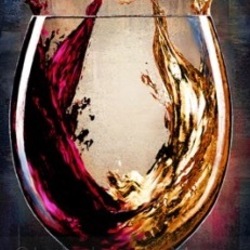
Bass Phillip
Premium Gippsland Pinot Noir 2009
Gorgeous earthy perfume, Forest Floor - could be Burgundian. A Tawny edge to the colour. My 2nd favourite Aussie Pinot after the Bass Phillip Reserve. Savoury cherry nuances on the palate but overall more savoury than fruit driven. Light to medium bodied. Very fine Tannins with natural acid still present. I expected more mid palate fruit for what Phillip Jones described as “one of our best vintages” to that point. They have had better ones since IMO. I would not normally taste a BP Premium under 10 years (this being the first of 4) but having tasted this I wish I had had one say four years ago. In the category of wines I buy every vintage - like the Leeuwin Estate Art Series Chardonnay. — 7 years ago
Domaine de Pallus
Les Pensées de Pallus Chinon Cabernet Franc 2013
Spicy, salty and bold. Grippy tannins, medium body, tight acidity. I get a blast of old flavor green sweetarts, the lime ones. Great flavor, but could be better with a longer, more robust finish — 8 years ago
Matthiasson
Napa Valley Red Blend 2007
Celebrating the birth of our twins, Drew and Emma!!! Can't go crazy while helping feed the little ones every 3 hours, but a glass of this is a great change to 4 nights in the hospital.
Classic Matthiasson Napa Red Blend. Definitely give it a little air, but it is somewhat passed its prime in my mind. The nose is the best part, then the finish, but it is starting to run thin and losing fruit and tannins. Still a great wine!
Back to burp cloths and bottles of a different type :) — 8 years ago
Hacienda La Lomita
Tinto de la Hacienda 2014
House red. Most closed of the ones we've tasted here--much more grip and body, oak spice notes. Plum, cherry. — 8 years ago

Château Léoville-Las Cases
Grand Vin de Leoville du Marquis de las Cases Saint-Julien Red Bordeaux Blend 2005
In my mind, there’s no better way to celebrate another trip around the sun than with loved ones, watching the sunset, while sharing a delicious meal and wine pairing. This evening hits the mark!
This wine is a 2nd growth Saint-Julien from the Médoc, left bank, region of Bordeaux, France. When I say 2nd growth, that means the Château from which this wine hails received the second highest quality designation as of part of the “1855 Classification” that took place during the Universal Expedition in Paris in 1855. This quality designation remains intact today despite the centuries that have passed.
This wine is clear with a deep ruby hue and garnet rim variation. On the nose this wine has medium intensity(+) of developing aromas with a large focus on blackberry, fig, cassis, prune, potpourri, incense, anise, cedar, vanilla, clove, nutmeg, earth, leather, and tobacco. On the palate this wine is dry. It has medium acidity, a medium(+) body, medium alcohol, high tannins, and medium intensity in flavors consistent with the nose. The finish is long.
Interestingly, the fermentation took place in various vessels, including those made from oak, steel, and concrete and then this wine aged in oak barriques (small oak vessels) until it was ready for bottling.
It was also cellared at the Château from harvest until shipping in 2015.
Château Léonville, Grand Vin de Léonville du Marquis de Las Cases, Saint-Julien, Médoc. Vintage 2005. ABV 13%.
This wine has complexity, balance, structure, and length. It’s outstanding. I’m not surprised to see a 100-point rating from Wine Spectator. Thank you @Deke for the amazing Birthday selection! — 5 years ago

Tenuta di Fessina
A' Puddara Etna Bianco Carricante 2013
On the Lawn at Tanglewood this afternoon with the Boston Symphony Orchestra. Our conductor Andris Nelsons is leading GERSHWIN (Piano Concerto in F), GERSHWIN (Variations on “I Got Rhythm,” for piano and orchestra) and STRAVINSKY (Petrushka) with the amazing Jean-Yves Thibaude as the piano soloist on the two first works presented today. Jean-Yves is by far among our favorite pianists to grace the Koussevitzky Shed stage, so graceful, yet poignant!
Hot days call for cool wines, today there are some fun ones planned for sharing.
Similar notes from our last bottle.
Savory herbs, beeswax, citrus pith. So wonderful! — 6 years ago
Produttori del Barbaresco
Barbaresco Nebbiolo 2014
Great Torre in the making. Still very primary and upon opening shy nose with acidity and tannins dominating. After 30min slow-ox and getting up to temp the nose opens revealing hints of whats coming with florals, red berries, some forest floor. Similarly fruit picks up in intensity, tannins soften and wine turns to nice young nebbiolo balance. This is very much red fruited with gread mid palate intensity and additional depth still lurking in need of bit more bottle age. After 2h the wine begins to shut down confirming it's still work in progress. If you like excellent young barbaresco and empty your bottle withing 2h feel free and pop. However I'll store my remaining ones for 2-3 more years to get bit more complexity and developed notes I adore in Produttoris bottlings — 7 years ago
Château Duhart Milon
Pauillac Cabernet Sauvignon - Merlot Blend 2006
The 06 vintage was more highly praised by the Bordelais than it delivered. That’s not to say, some producers didn’t deliver.
This 06 is not at its peak...still needs a few years. Will it be a wine that blows you away? Not likely but, it will deliver nice fruit, earth & balance. Especially, with a Ribeye.
The nose shows; ripe; blackberries, dark cherries, black raspberries, baked strawberries, dry cranberries & some black plum. Saddle-wood, limestone minerals, dry stones, cinnamon, soft spice, light vanilla, black rich earth, touch of black licorice and red & dark fresh florals.
The body is round and a little lean but puts on weight with food and decanting. The structure, length & tension are falling into place. The fruits are ripe and expressive. Blackberries, dark cherries, black raspberries, baked strawberries, haunting blue fruits, dry cranberries & some black plum. Saddle-wood, touch herbaceous, mint, limestone minerals, dry clay, dry stones, cinnamon, soft spice, cola, light vanilla, black rich earth, touch of black licorice and red & dark fresh florals. The acidity is round and beautiful. The finish is on the leaner side but, well balanced and lasts a full minute. 9.1 without the Ribeye, 9.2 with it.
Photos of, Duhart Milon, Cabernet ready to to be pressed, wine making facilities and their barrel room.
Producer history and notes...the Rothschild family is divided into two sects for lack of a better word. There are the ones that own Mouton Rothschild and Cleric Milon etc. and the other owns Lafite and Duhart. The two sides of the families don’t necessarily get along. However, they are two of the oldest/wealthiest families in recorded history.
Duhart Milon was originally known only as Chateau Milon. At one time the estate was the second wine of Chateau Lafite.
The story about how this came to be is interesting. The owner of Lafite at that time was the Marquis Nicolas-Alexandre de Segur. King Louis XV called him “The Wine Prince” because of his extensive vineyard holdings in Bordeaux. The Milon vineyards were well regarded but, not as good as Lafite, which is how the wine came to be thought of as the second wine for Lafite.
In 1815, the property was considered by some people as a fourth growth Bordeaux wine in the making. In those days, the wine was sold under the name of Chateau Mandavy-Milon. Between 1830 and 1840, the Casteja family inherited the estate.
The label of Duhart Milon, according to family tradition came about from an old legend written about one of their ancestors, Sir Duhart. Sir Duhart, was rumored to have been a pirate for Louis XV. He retired in Pauillac. The “Pirate’s House” on the Pauillac port existed up to the 1950’s. That original building inspired the label for the Duhart-Milon wines.
The Casteja family remained in possession of Duhart Milon until the first part of the 20th century. At the time, Chateau Duhart Milon was one of larger Pauillac estates with around 50 hectares of vines.
In 1937, the result of successive inheritances led to the sale of Duhart Milon. The Left Bank property went through five different owners in just 25 years. As well, the vineyards were split up and with the frost of 1956, the quality of Duhart Milon continued declining until the Rothschild family purchased the property in 1962.
At that time of the sale, Chateau Duhart Milon included 110 hectares of land, of which only 17 hectares were planted with vines. The entire vineyard was in desperate need of replanting. Major renovations were urgently needed in the vineyards, which demanded work on the drainage and replanting.
The size of their vineyards were also increased with the purchase of other parcels adding to the size of their Medoc holdings. New cellars needed to be built as well.
Chateau Duhart Milon remains one of the few 1855 Classified Growth estates without an actual Chateau. At Duhart, all you will find are the cellars, vatting rooms and barrel storages.
During the period of 1970 to 2000, the vineyards nearly doubled in size! Additionally, they constructed new cellars, renovated and modernized their wine making facilities as well in 2003. By 2008, the wine of Duhart Milon increased in quality, stature and price.
Much of the price increase had to do with the association with Chateau Lafite Rothschild, which had by that time, become the most in-demand, collectible wine in China. By the time the 2015 vintage was offered, prices had dropped to a more affordable price level due to changes in Chinese laws regarding client gifts/bribes.
The 152 hectare vineyard of Chateau Duhart Milon includes; 76 hectares of vines planted to 67% Cabernet Sauvignon and 33% Merlot. This makes Chateau Duhart Milon one of the few 1855 Classified Growths with only two grape varieties planted in their vineyards.
The average age of the vines are 30 years old. The vineyard is planted to a vine density of 7,500 vines per hectare.
Duhart Milon vineyards are located in northern Pauillac, on the western side of Chateau Lafite Rothschild, on the Milon hillside, which is not far from the Carruades plateau...now Lafite’s second wine. This places the vineyard quite close to Chateau Mouton Rothschild and Chateau Clerc Milon. However, because of micro climates, this is a slightly cooler terroir, due to its northern exposure.
The naturally cooler soils provides more freshness to the wine, and allows for later picking. The terroir of Chateau Duhart Milon is a combination of gravel, sand and limestone soils. The Duhart Milon vineyards are unique in Pauillac, as the vines are for the most part, located in 1 single, large parcel.
The vinification of Chateau Duhart Milon takes place in temperature controlled stainless vats. Malolactic fermentation takes place in vat. Chateau Duhart Milon is then aged in an average of 50% new French oak barrels for 14 to 16 months, depending on the vintage.
There is a second wine, Moulin de Duhart, that was created in 1986. There is also a third wine produced by the estate, Baron de Milon. — 7 years ago


Jules Taylor
Marlborough Sauvignon Blanc 2019
This is classic NZ Sauvignon Blanc, and I rate this vintage higher than previous ones. Crisp, fresh, great minerals, balanced. Wonderful. — 5 years ago
Jones Family Vineyard
Napa Valley Cabernet Sauvignon 2002
2002 is such a beautiful vintage IMHO. In many ways, I think even better than 07. We’ll see in five years from now as I lack a time machine.
I’ve said this a couple of times over my nearly 4,200 Delectable notes. There is no amount of decanting a young wine that can reproduce the beauty, elegance, florals, integration, balance and finish as long bottle age. If you are buying expensive Cabernets and drinking them young, you are simply short changing yourself out of your deep investment.
This largely under known Napa producer is a shining example of that tonight. Proof in the pudding so to speak.
The nose reveals, sweet, ripe, lush, ruby, slightly baked/liqueured fruits of; blackberries, black raspberries, black cherries, black plum, understated blueberries and baked strawberries haunt the backend. Dark Asian & Indian spices, black licorice to anise, sweet tarriness, black tea, dark expresso, crushed dry rocks, limestone minerals, herbal notes, mint, incense, graphite, dark chocolate, caramel & mocha, dry top soil, moist clay, dark rich, turn earth with fresh & withering; dark, red, purple, blue flowers & just a touch of violets.
The body is; round, rich & luxurious. The tannins still have baby teeth and show chewy tarriness. The tension, structure, length and balance have hit their peak. It’s not going to improve, it will simply show you descending changes which, can be quite enjoyable but, not necessarily for the ones that appreciate wines young. Interesting, none the less, for the ones that enjoy all sides/aspects of wine evolution. Sweet, ripe, lush, ruby, slightly baked/liqueured fruits of; blackberries, black raspberries, black cherries, black plum, mulberries, boysenberries, more blue fruits than the nose, cherries and baked strawberries haunt the backend. Dark Asian & Indian spices with just the right amount of heat, black licorice to anise, sweet tarriness, black tea, dark expresso, crushed dry rocks, limestone minerals, herbal notes, mint, graphite, dark chocolate, caramel & mocha, dry top soil, moist clay, dark rich, turn earth, fresh tobacco, suede style leather, saddle-wood with fresh & withering; dark, red, purple, blue flowers & just a touch of violets. The ABV on this wine is really nice given today’s hotter wines. Climate change, it’s a bitch. The round acidy is as good as it gets. The long, excellent, elegant, rich, ripe, ruby, gorgeous, sexy, floral, perfectly balanced finish falls into persistent heaven.
This is a gorgeous example of what Napa Valley is capable of in grand vintages, if you have good storage & can show patience.
Photos of; an arial view of Jones Family Winery, patio tasting area, beautiful Jones Family Cabernet fruit and their amazing vineyards. — 6 years ago


Clos Saint Jean
Deus Ex Machina Châteauneuf-du-Pape Red Rhone Blend 2007
Promise in a bottle, full throttle and beautifully extracted juice loaded with fig, pepper and spice. Sharp, powerful tannins suggest a 20 year wine with dark blue fruit to match. Can’t wait to see how this sorts out but my kids may be the ones who find out.... — 7 years ago
Andrew Rich
Croft Vineyard Sauvignon Blanc 2016
Joy to drink. Soft and juicy for SB but not the type of sweetness I associate with some California ones. — 8 years ago
Gramercy Cellars
Columbia Valley Syrah 2013
Nice color of purple. Very interesting Syrah as she has characters very different from traditional ones. Cherry, berries, violets, saline, roses, a bit leather and saline. Aftertaste shows some more zest, a bit spicy, and a bit sweet note, quite high in alcohol. — 8 years ago












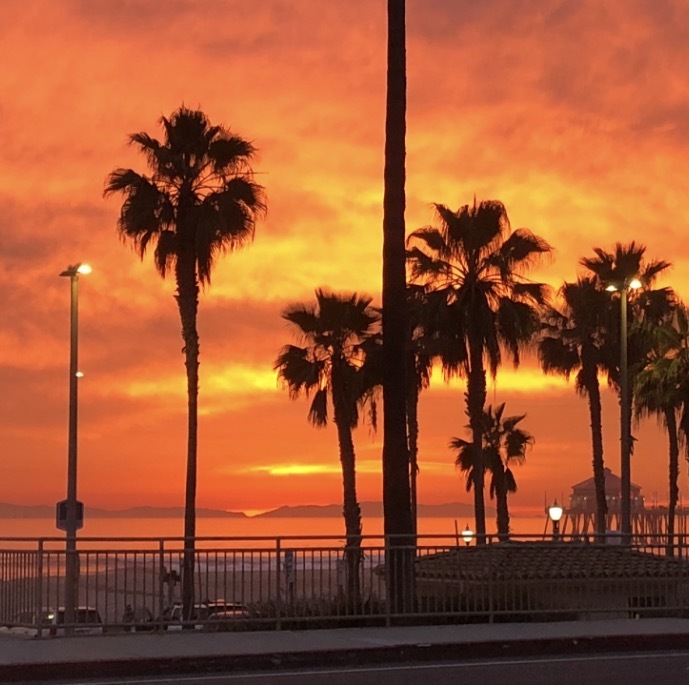
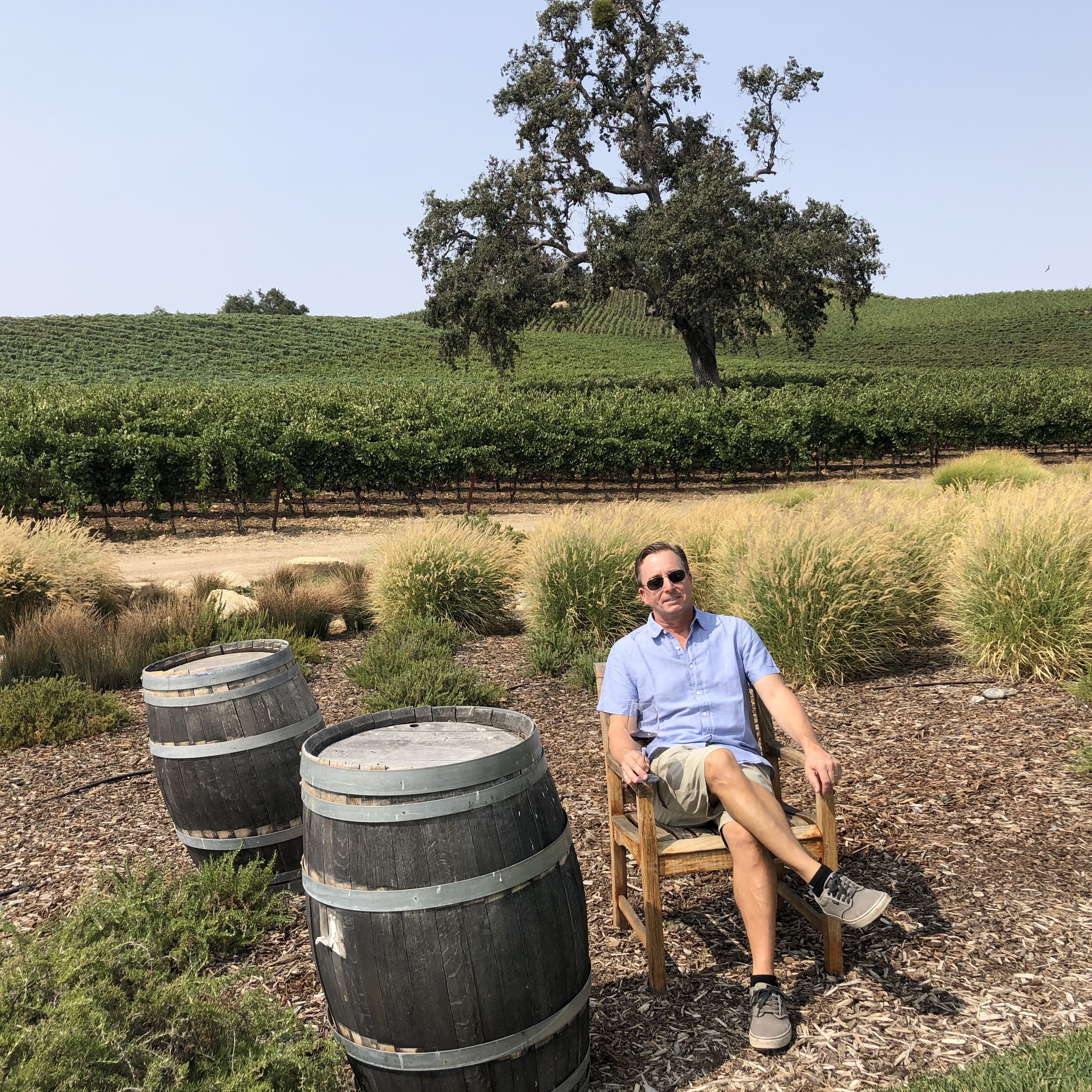

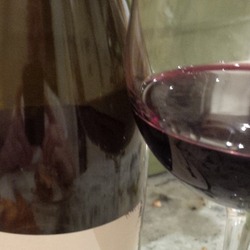

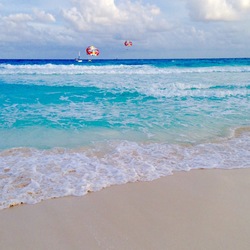
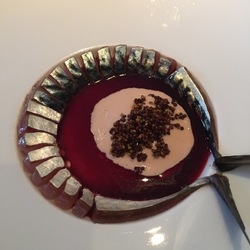
Alan Hyde
Great balance of terroir and fruit. One of the better earthy ones. — 4 years ago